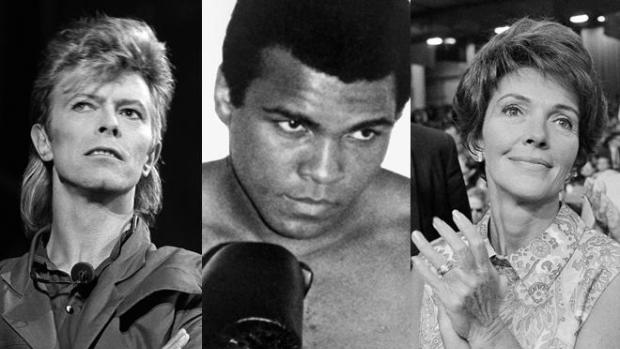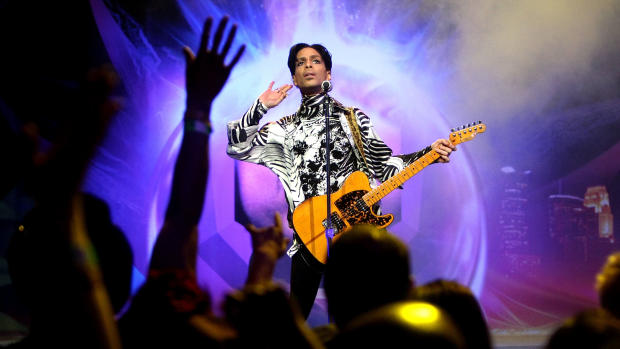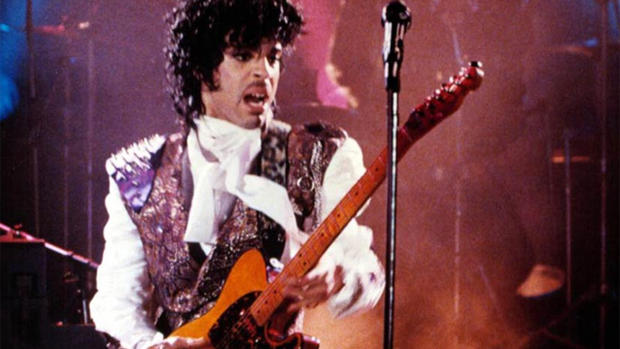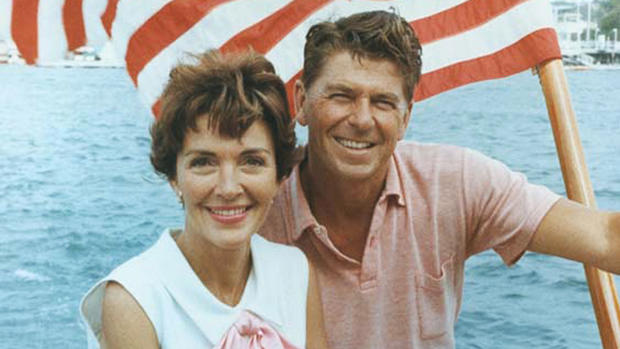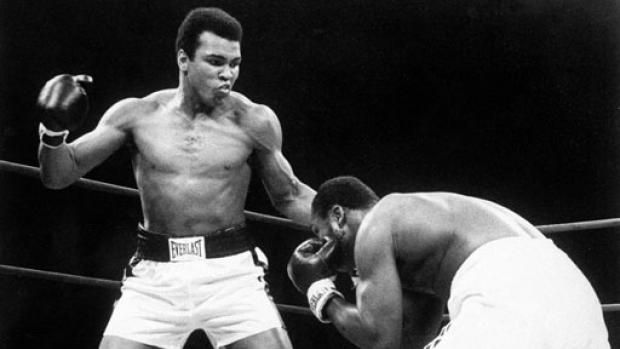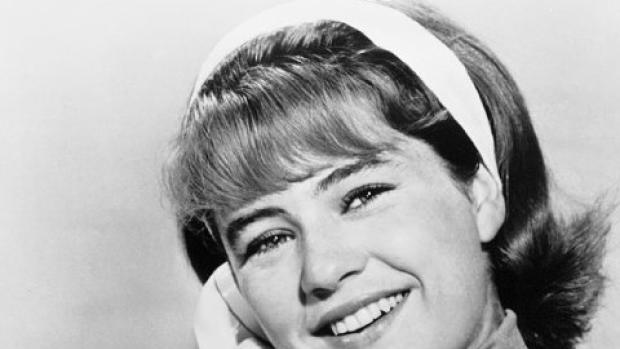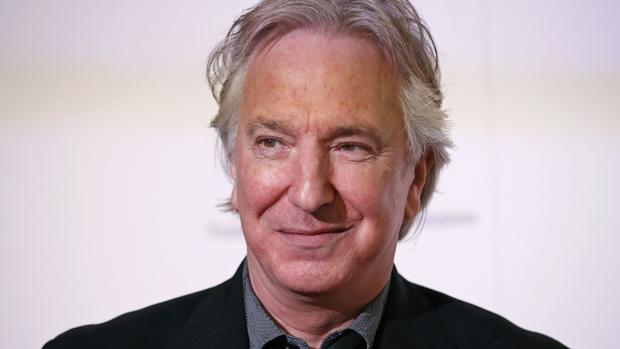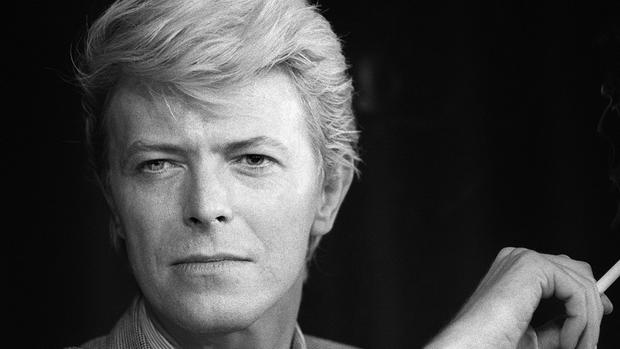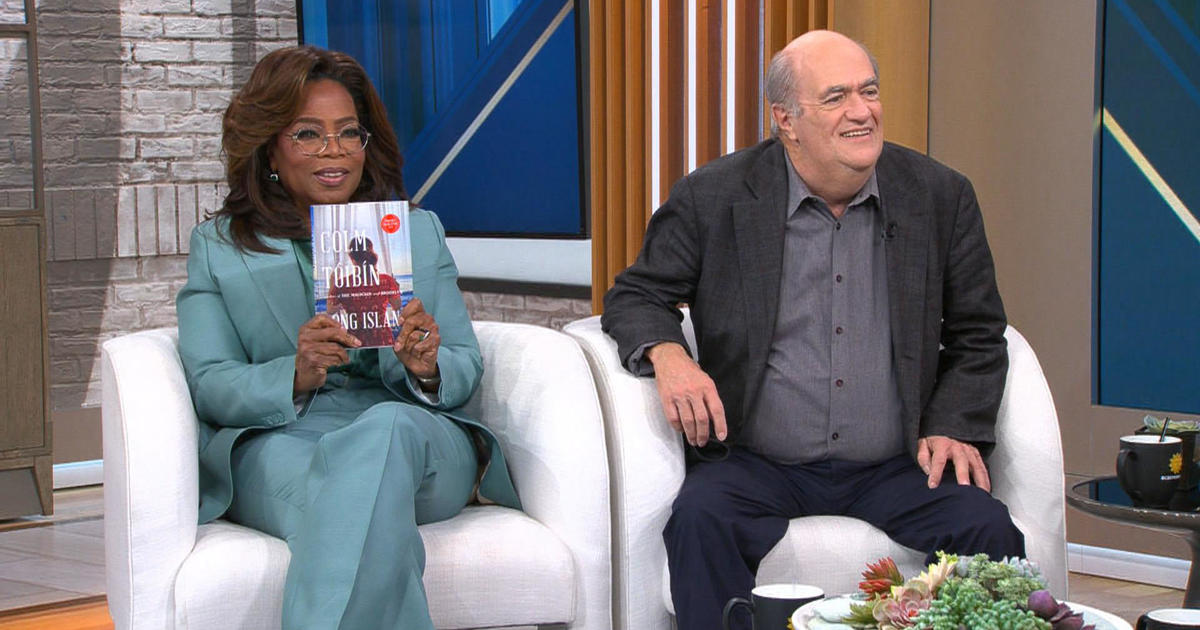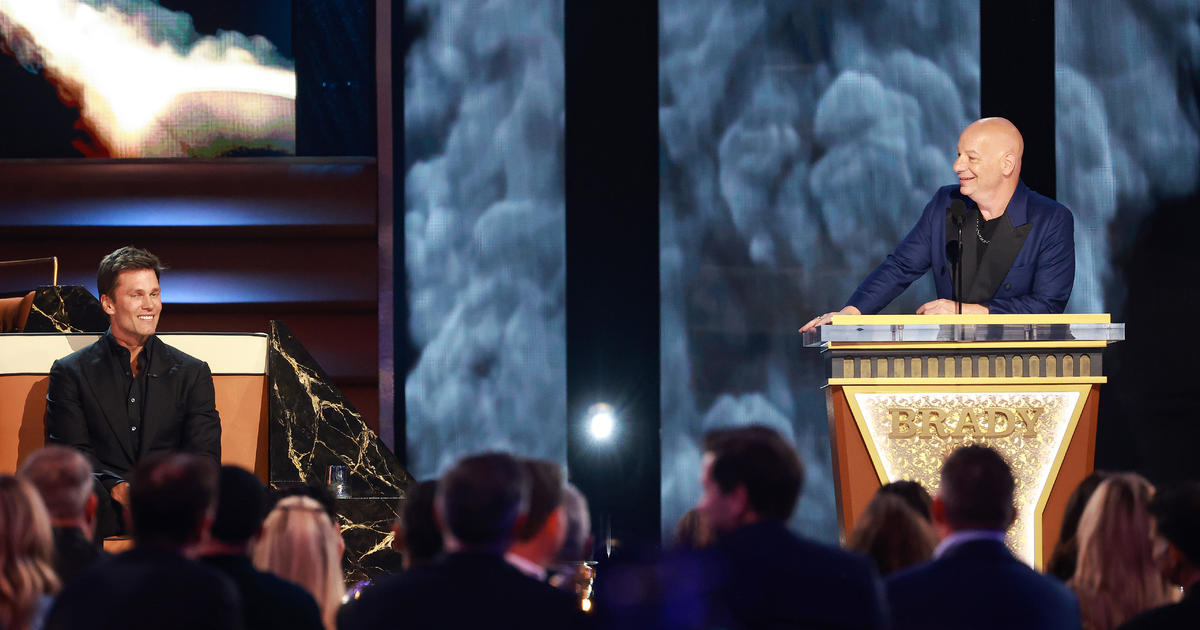Hail and farewell to those we lost in 2016
It’s a “Sunday Morning” tradition. Come the end of the year, Jane Pauley takes time to remember some of the many people who left us in the year gone by. After having paid our respects to Debbie Reynolds and Carrie Fisher, we now say HAIL AND FAREWELL to many others whose lives touched our own:
“Dearly beloved, we are gathered here today to get through this thing called Life.
Electric word life
It means forever and that’s a mighty long time
But I’m here to tell you
There’s something else
The afterworld
A world of neverending happiness
You can always see the sun, day or night”
Like a preacher to his flock, Prince spread a gospel of music bursting with love, funk and soul. He was a self-taught virtuoso, who wrote countless songs, such as “Let’s Go Crazy,” from “Purple Rain.”
“You know, these are like my children,” he said. “They are will be all that will be left upon my departing of this experience.”
If you don’t like the world you’re living in
Take a look around you
At least you got friends …Are we gonna let the elevator bring us down
Oh, no let’s go!
Let’s go crazy
Let’s get nuts …We’re all excited
But we don’t know why
Maybe it’s ‘cause
We’re all gonna dieAnd when we do, what’s it all for
You better live now
Before the Grim Reaper come knocking on your door.
In his life, he maintained an aura of mystery. And at 57, he left us this past year … he left us wanting more.
- Prince dead at 57
- Celebs share their heartbreak over Prince, dead at 57
- Prince: An appreciation by Bill Flanagan (“Sunday Morning”)
- Gallery: Songs you didn’t know Prince wrote
- Stevie Wonder on Prince’s “greatness” and “love for people”
- Gallery: Fan tributes to Prince
Atticus Finch: “You never really understand a person until you consider things from his point of view, until you climb into his skin and walk around in it.”
Author Harper Lee’s first novel, “To Kill a Mockingbird,” won the Pulitzer Prize in 1960. The movie adaptation starring Gregory Peck is a film classic to this day. A lot of us walked around “in the skin” of Lee’s characters, who lived in a fictional Southern town that really could have been anywhere.
- Harper Lee, author of “To Kill a Mockingbird,” dead at 89
- A remembrance of Harper Lee (“Sunday Morning”)
- Celebrities, writers, politicians mourn Harper Lee on Twitter
- Gallery: Harper Lee 1926-2016
Author Pat Conroy left us in 2016. Among his novels: “The Prince of Tides” and “The Great Santini,” both about families: “It always seemed literature is much better when there’s a love-hate relationship.”
He told CBS News, “I always felt if I told the story of the South I’ll tell the history of the whole world.”
- Pat Conroy, author of “The Prince of Tides,” dies at 70
- From 1995: Bill Geist on Pat Conroy (“Sunday Morning”)
- Passage: Three outsized talents (“Sunday Morning”)
As an overly-involved parent on “Everybody Loves Raymond,” everybody loved Emmy-winning mom Doris Roberts.
Raymond: “But other parents aren’t lying, Ma. They believe in their children.”
Marie: “No, they don’t.”
- Doris Roberts, “Everybody Loves Raymond” star, dies at 90
- Celebrities react to the death of Doris Roberts
“Mama tried, Mama tried.
Mama tried to raise me better, but her pleading, I denied.
That leaves only me to blame ‘cause Mama tried.”
Merle Haggard sang about his mother. But he was no mama’s little angel. “The more I went to jail,” he said, “the more I learned about being an outlaw.”
Convicted for burglary as a young man, Haggard spent time in San Quentin, then mined his life story for his songs -- and became a legend.
- Country icon Merle Haggard dies at 79
- Remembering Merle Haggard, in his own words (“CBS Evening News”)
- Tributes pour in for late country legend Merle Haggard
- Rolling Stone’s Jon Levy on Merle Haggard’s lasting impact on country music
Some other music giants left us during the year, including Joey Feek, who sang:
“You wonder why the Earth still moves.
You wonder how you’ll carry on.
But you’ll be okay on that first day when I’m gone.”
Also, singer Bobby Vee; musician Leon Russell; Paul Kantner of the Jefferson Airplane; Fred Hellerman of The Weavers; music producer Sir George Martin; bluegrass musician Ralph Stanley; Malik “Phife Dawg” Taylor, of A Tribe Called Quest; and Keith Emerson and Greg Lake, both of Emerson, Lake & Palmer.
“I’d like to teach the world to sing,
in perfect harmony.
I’d like to buy a Coke,
and keep it company,
because that’s the real thing.”
Adman Bill Backer was the real thing. He wrote jingles for Coca-Cola, tag-lines for Campbell’s Soup (“Soup is good food”), and remember this one? “If you’ve got the time, we’ve got the beer!”
Jim Delligatti didn’t write the jingle for the Big Mac, but he cooked up the recipe (Two all-beef patties, special sauce, lettuce, cheese, pickles, onions on a sesame seed bun). Billions have been served since.
Raymond Tomlinson: You might say he knew where it’s at: he put the @ sign in our email addresses.
In countless photographs, Bill Cunningham turned the people of New York into trendsetting models. “The best fashion show is definitely on the street -- always has been, and always will be,” he said.
But it was on catwalks where designer James Galanos showed his style. As he put it, “Times change, people change, looks change. But good taste is the most important thing.”
And it may be that no one wore Galanos better than first lady Nancy Reagan, who also left us this past year. She was known for being President Ronald Reagan’s closest advisor.
“I think there’s always a certain jealousy, if that’s the word you want to use, of the one who’s closest to the president,” she said, “and obviously the one closest is his wife … or should be, I hope!”
After the president’s diagnosis with Alzheimer’s, Mrs. Reagan became an important supporter of stem cell research (“I just don’t see how we can turn our backs on this”), a stance at odds with some of her fellow Republicans.
- Former first lady Nancy Reagan dead at 94
- Nancy and Ronald Reagan: A classic love story (“CBS This Morning”)
- The Reagan Years on “60 Minutes”
- The quiet determination of Nancy Reagan (“CBS Evening News”)
- Lesley Stahl on the death of Nancy Reagan
- Politicians, celebrities mourn Nancy Reagan
- Remembering Nancy Reagan’s Hollywood career
- Gen. Colin Powell recalls “hardball” side of Nancy Reagan (“CBS This Morning”)
“I think the pro-lifers are the vitality, the enthusiasm and the heart and soul of the Republican Party,” said Phyllis Schlafly, a conservative who battled fiercely for her causes.
Supreme Court Justice Antonin Scalia: He, too, was a vibrant conservative voice (“I attack ideas, I don’t attack people. And some very good people have some very bad ideas. And if you can’t separate the two, you gotta get another day job”).
He was a fighter who could also be engagingly warm as a colleague and friend. “I can be charming and combative at the same time,” he said. “What’s contradictory between the two? I love to argue. It may well be that I’m something of a shin kicker.”
- Supreme Court Justice Antonin Scalia found dead in Texas
- Supreme Court justices’ emotional reactions to Antonin Scalia’s death
- Without Antonin Scalia, what’s next for the Supreme Court?
- Gallery: Antonin Scalia 1936-2016
Activist Tom Hayden fought for the other side; he was a leader of the civil rights and anti-war movements of the 1960s. “Those who tried to put us in jail have gone to prison themselves,” he once said. “Well, we are still here!”
Fidel Castro was a leader of the Cuban resistance in the 1950s, who became a dictator in the Sixties, and who would live to haunt 11 U.S. presidents. Some admired him; others feared and even fled him.
- Fidel Castro, Cuba’s fiery communist leader, dead at 90
- Miami’s Little Havana reacts to Castro’s death
- How Fidel Castro stood up to the U.S., and won (“Sunday Morning”)
- Castro: The good and the bad (“Sunday Morning”)
- Douglas Brinkley: Fidel Castro’s shadow will continue to loom large (“Sunday Morning”)
- Gallery: Fidel Castro 1926-2016
It was then-Attorney General Janet Reno who made the controversial decision to send one young refugee, Elián González, back to Cuba. “It is time for this little boy, who has been through so much, to be with his father,” she said.
Reno was our first woman attorney general, and she served while grappling with Parkinson’s. Through it all, she never compromised her ideals.
... Nor did Muhammad Ali. (“I’m the king of the world! I am pretty!”) He was a three-time world heavyweight boxing champion. Born Cassius Clay, Ali changed his name when he converted to Islam.
“It’s Muhammad Ali. Muhammad means ‘worthy of all praises,’ and Ali means ‘most kind.’”
He became a polarizing figure for his religious beliefs and his refusal to fight in the Vietnam War. “Whatever suffering or punishment I may have to take, it’ll all be because of my religion,” he said.
But he would later be admired as much for fighting for his convictions as for fighting in the ring. He, too, was afflicted with Parkinson’s, but put up the good fight to the end.
“And I’m still the king, and the greatest of all time!”
- Muhammad Ali, boxing legend and cultural icon, dies
- The life of “The Greatest” (“Sunday Morning”)
- Muhammad Ali’s long struggle with Parkinson’s disease
Arnold Palmer was the first superstar of golf. He popularized not only the game, but the iced tea-and-lemonade drink that bears his name. We raise a glass to him!
… and to these other sport legends we lost in the year gone by: tennis announcer Bud Collins; Baseball Hall of Famer Monte Irvin; Basketball Hall of Famer Nate Thurmond; Olympic diving champion Sammy Lee; Women’s college basketball head coach Pat Summitt; tennis player Gardnar Mulloy; sportscaster Craig Sager; and hockey player Gordie Howe.
“And even though it all went wrong,
I’ll stand right here before the lord of song
with nothing, nothing on my tongue but
Hallelujah.”
Leonard Cohen left us last year at age 82. Cohen was already a poet and novelist when he released his first record. We’ll remember his deep voice and powerful songs.
- Leonard Cohen, influential singer-songwriter, dies at 82
- Stars react to the death of Leonard Cohen
- Bill Flanagan on Leonard Cohen (“Sunday Morning”)
- The 10 best covers of Leonard Cohen’s “Hallelujah”
- Gallery: Remembering singer-songwriter Leonard Cohen, 1934-2016
“The most dangerous drug in rock ‘n’ roll is applause,” said Glenn Frey. “That seemed to be the one that got me the most jacked up.” And there was plenty of applause for Frey, co-founder of The Eagles.
- Glenn Frey, guitarist of the Eagles, dies at 67
- Celebrities, fans mourn the death of the Eagles’ Glenn Frey
- Gallery: Glenn Frey 1948-2016
“Do you remember,
The 21st night of September?
Love was changing the minds of pretenders…”
And we remember Maurice White, creator and leader of Earth, Wind and Fire -- a name inspired by the stars (or at least his stars - the elements of his chart were Earth, air and fire).
- Earth, Wind & Fire founder Maurice White dead at 74
- Earth, Wind & Fire’s greatest hits
- Take Note: The passing of Maurice White (“Sunday Morning”)
- From 2013: The continuing saga of Earth, Wind & Fire (“Sunday Morning”)
On the subject of stars, George Michael was a pop superstar. We said goodbye to him just last week.
- George Michael, Wham! lead singer, dead at 53, publicist says
- Stars react to George Michael’s death
- George Michael remembered for charity work
- Gallery: George Michael 1963-2016
Garry Marshall filled our lives with laughter, creating sit-coms and directing rom-coms. “I sincerely like to make people laugh and make them smile,” he said. “Nothing beats that, to see a whole bunch of audiences laugh and smile and have a good time.”
For all those happy days, we’ll remember Marshall.
- Director Garry Marshall dead at 81
- Remembering Garry Marshall (“Sunday Morning”)
- Celebs pay tribute to “Pretty Woman” director Garry Marshall
- Garry Marshall on his “Happy Days in Hollywood” (“CBS This Morning”)
And Zsa Zsa! We’ll remember Zsa Zsa Gabor for her glamorous lifestyle -- and many, many marriages.
Patty Duke became a star on stage and screen as a child when she played Helen Keller. But she may be best remembered for those identical cousins on “The Patty Duke Show.”
William Schallert played her dad; he left us last year, too.
- Oscar-winning actress Patty Duke dies at 69
- Passage: Patty Duke (“Sunday Morning”)
- Sean Astin opens up on mom Patty Duke’s legacy
And so did Florence Henderson, who headed television’s most famous blended family, “The Brady Bunch.” “I created Carol Brady to be the mother that I’d always wished I had,” she said.
- Florence Henderson, “Brady Bunch” mom, dead at 82 (“CBS This Morning”)
- Celebrities react to the death of Florence Henderson
- Florence Henderson’s eclectic post-”Brady Bunch” career
- From the archives: Florence Henderson, America’s Mom (“Sunday Morning”)
And we lost another TV dad: Alan Thicke.
And still more beloved television friends: comedian Garry Shandling; Pat Harrington of “One Day at a Time”; James Noble, “Benson”; Noel Neill of “The Adventures of Superman”; Fyvush Finkel, of “Picket Fences”; Alan Young, of “Mr. Ed”; and Robert Vaughn, who played “The Man from U.N.C.L.E.”
From the TV comedy “Barney Miller,” we said goodbye to both Ron Glass and Abe Vigoda.
From “Cool Hand Luke” to “The Naked Gun,” drama or comedy, George Kennedy could do it all.
And Alan Rickman -- known the world over as that professor of potions, Severus Snape, in the “Harry Potter” movies.
- Alan Rickman, star of “Die Hard” and “Harry Potter” films, dies
- David Edelstein’s tribute to Alan Rickman (“Sunday Morning”)
- Harry Potter fans, co-stars, raise their wands for Alan Rickman’s magic
- Stars mourn Alan Rickman on social media
By any name -- Leo Bloom, Jim (“Well, my name is Jim. But most people call me … Jim”), Willy Wonka or “Fronkensteen,” Gene Wilder was unforgettable. But Gene Wilder wasn’t his real name, either: “I couldn’t be introduced as Jerry Silverman. I couldn’t see Jerry Silverman in ‘Hamlet,’ in ‘Macbeth.’ The ring, it doesn’t sound right.”
“I have no regrets. I’ve had a wonderful life, a charmed life, a great career” he said.
“Just think. Yesterday, I was a meaningless little accountant, and today I’m the producer of a Broadway flop!”
Not so, Edward Albee. He won three Pulitzer Prizes for his plays. His “Who’s Afraid of Virginia Wolff” is a classic.
“No two people see the same play,” Albee said. “The experience they bring, the enthusiasms they bring, what they wish to think about, what they don’t want to think about. Some see the play I wrote. Some, not all”
- Edward Albee, Pulitzer Prize-winning playwright, dead at 88
- Passage: Edward Albee (“Sunday Morning”)
- From 2013: Q&A with playwright Edward Albee (“Sunday Morning”)
Who could turn a phrase like our Morley Safer? He never held his fire -- not when he was covering Vietnam, nor when he set his sights on modern art. We loved having him in our homes almost as much as he loved being there. “It is on rare days like this that you must ask, ‘Do they really pay me to do this?’ ‘Yes.’”
- Morley Safer dies at 84 (“60 Minutes”)
- Morley Safer: A reporter’s life (“60 Minutes”)
- Morley Safer on art (“Sunday Morning”)
- Gallery: Morley Safer 1931-2016
Trailblazing journalist Gwen Ifill spoke truth to power in Washington.
- Gwen Ifill, “PBS NewsHour” anchor, is dead at 61
- John Dickerson’s tribute to his beloved friend and colleague Gwen Ifill
And then there’s John McLaughlin, the one-time priest who became a Washington pundit. He never missed a show in 34 years.
- John McLaughlin, political commentator and TV host, dead at 89
- An appreciation: You’ll be missed, John McLaughlin
Journalist Sydney Schanberg wrote about the fall of Cambodia to the Khmer Rouge. His reports won a Pulitzer Prize and inspired the movie “the Killing Fields.” “It just reminds us that genocide is just around the corner all the time,” he said. “But it happens. It didn’t end in World War II.”
Elie Wiesel suffered the atrocities of the Holocaust and lived to tell.
“The question was, why did I survive? Why I? Every survivor asks that question. Every survivor is haunted by this question to this day,” he said. “If Auschwitz couldn’t kill the world of anti-Semitism, what could, and what can, and what will kill the world?”
He won a Nobel Peace Prize for his legacy of books, museums and memorials -- reminding us to never forget.
- Elie Wiesel, Holocaust survivor and Nobel laureate, dead at 87
- Passage: Elie Wiesel (“Sunday Morning”)
- Elie Wiesel dead: World mourns loss of Holocaust survivor, Nobel laureate
- Remembering Elie Weisel (“Face the Nation”)
- Gallery: Elie Weisel 1928-2016
And we will never forget our service men and women who died protecting our rights and freedoms during the year gone by. We thank them.
And we’ll remember David Bowie. His songs spoke to millions.
How can we forget his many stage personas and wild wardrobe? (“A lot of it just makes me laugh,” he said. “I mean, have you seen those boots?”)
His performances were quite simply out of this world:
“There’s a starman waiting in the sky
He’d like to come and meet us
But he thinks he’d blow our minds
There’s a starman waiting in the sky
He’s told us not to blow it
‘Cause he knows it’s all worthwhile
He told me: Let the children lose it
Let the children use it
Let all the children boogie”
- David Bowie dead at 69
- David Bowie: 10 moments that defined his career
- Bill Flanagan on the artistry of David Bowie (“Sunday Morning”)
- Stars remember David Bowie at tribute concert
- David Bowie’s unaired 60 Minutes interviews
- Gallery: A David Bowie discography (“Sunday Morning”)
- Remembering David Bowie (“CBS This Morning”)
- Astronauts honor “Starman” David Bowie from space
Which brings us to real-life starman John Glenn -- the first American to orbit the Earth. On his return, he was given a hero’s welcome. Years later, at age 77, he’d do it all over again.
“I know the word awesome gets overused these days, but if anything is really awesome, it’s looking out from up here, and seeing that for the first time on a flight,” he said from the Interantional Space Station. “It’s truly awesome!”
God speed, John Glenn ...
- John Glenn, first American to orbit the Earth, dead at 95
- “True American hero”: World reacts to John Glenn’s death
- A little-known story from the life of John Glenn (“Sunday Morning”)
- Remembering John Glenn (“60 Minutes”)
- John Glenn recalled as humble hero, and “just Dad” to his children
- Gallery: John Glenn 1921-2016
They died young... Some were old... (they) made us laugh... Made us cry...
They made us laugh, they made us cry. Many left us too soon. To all those who touched us with their words and deeds, in ways large and small, we are grateful.
They graced our lives. Hail, and farewell.
